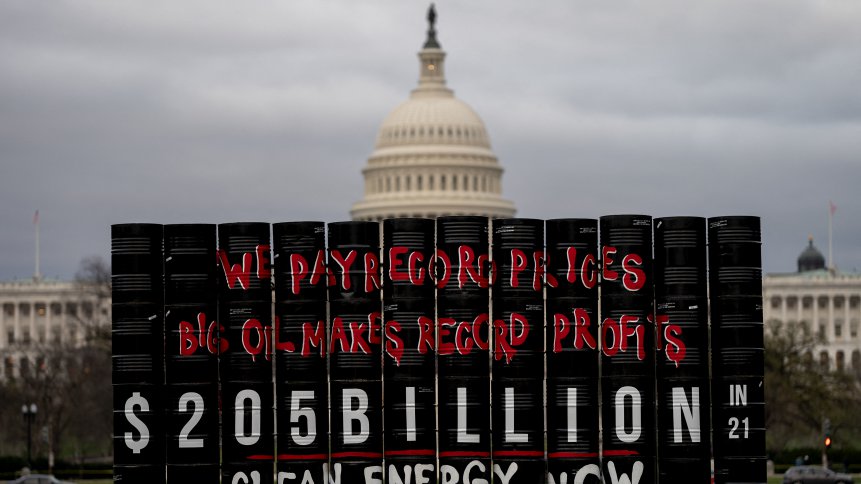Sustainability actions speak louder, says IBM study

For most enterprises today, environmental sustainability is no longer just an option for them. In fact, to ensure their products and services remain competitive and have a demand in the market, these businesses need to highlight their sustainability efforts.
Gone are the days whereby consumers are only interested in getting the best product. Today, the modern consumer looks at the entire supply chain of the product or service. This includes the entire supply chain process of the product as well as how the company is practicing its environmental sustainability efforts.
A new study by IBM’s Institute of Business Values (IBV) titled , Balancing sustainability and profitability: How businesses can protect people, planet, and the bottom line, which surveyed more than 16,000 respondents showed that more than half (51%) of respondents felt that environmental sustainability is more important to them today than it was 12 months ago. They are demonstrating its importance through their purchases, household choices, investments, employment, and travel decisions. However, they need help from companies to make the most sustainable choices.
The IBM IBV study which focused on the latest consumer and employee opinions and perspectives on environmental sustainability also found that consumers’ actions are starting to match their intent.
Back in 2021, half of the respondents said they were willing to pay a premium for a sustainable brand or product. And this year, almost the same percentage (49%) of respondents say they did pay more—an average of 59% more—for products branded as sustainable or socially responsible.
According to Sheri Hinish, global lead, IBM Consulting Sustainability Services, “consumer respondents have signaled they’re willing to commit personal resources and give up conveniences to protect the planet, and we’re finally seeing their aspirations and actions merge. But they need businesses to help break down the persistent barriers that are impeding them from making the most sustainable choices possible.”
Becoming the conscious shopper
Apart from buying goods, there has been an increase in respondents making sustainable choices at home as well as working with environmentally sustainable organizations. About one in three respondents also say environmental impact factors are now more important to them than convenience, cost, and comfort when purchasing travel.
When it comes to shopping, three in five respondents say products branded environmentally sustainable or socially responsible made up at least half of their last purchase on average. And it is not just the wealthy who are willing to pay more for sustainability. Four out of ten respondents in the lower income bracket (two-thirds less than the median household income by country) also say they paid a premium for products that are branded as environmentally sustainable or socially responsible products.

(Source – Shutterstock)
For investments, nearly two-thirds of personal investors surveyed see climate risk and sustainability as key factors that will influence the performance of their portfolios. 62% of personal investors surveyed say their portfolios take environmental sustainability into account, up from 48% in 2021. Nearly one in four (23%) respondents made a new investment in home renewable energy generation in the last 12 months and another one in four (26%) plan to do so in the next 12 months.
Environmental sustainability at work and travel
While unemployment and skills shortage are still a problem, two out of three respondents say they are more willing to apply for (67%) and accept (68%) jobs from organizations they consider to be environmentally sustainable. However, only 21% of respondents consider their current employers to be sustainable, which could translate to major flight risk.
As countries continue to promote electric vehicles (EVs), they have made significant headway, with nearly four in ten respondents traveling by private electric car at least monthly in the last year, and more than one in three (35%) say they’ve either stopped using personal cars that run on gasoline or use them less due to environmental sustainability concerns.
YOU MIGHT LIKE

Europe is growing companies in sustainability
The report also showed that many consumers are ready to make a change to EVs. Roughly four in ten of those surveyed who care deeply about the environment say their environmental concerns compelled them to reduce or eliminate travel by traditionally powered private cars and airplanes in the last year. And almost half of all travelers surveyed increased their use of EVs in the last year for the same reason.
This shift has decreased demand for traditionally powered vehicles and airplanes by 15% and 14% respectively and increased demand for EVs by 23% in the last year among those respondents who care deeply about the environment.
“The decisions consumers make can have huge impacts on a company’s bottom line, and consumers have spoken—they want more sustainable choices possible. By paving a clearer, more accessible path to responsible consumption, executives can do even more to build a sustainable future—for the planet, for their customers, and their businesses,” commented Hinish.








